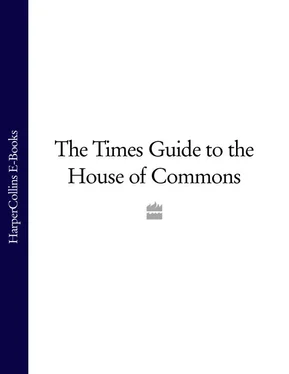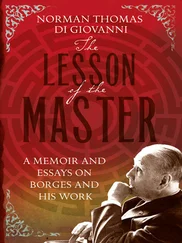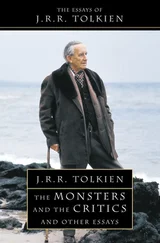The Times: Guide to the House of Commons 2010
Editor
Assistant Editor
Design Production Editor
Chief Sub-Editor

Cover Page
Title Page The Times: Guide to the House of Commons 2010 Editor
THE TIMES An aid to the navigation of uncharted political waters
The House of Commons
The new Parliament
An ordinary beginning to an extraordinary campaign
How the polls really got it right
A tremor that changed the political landscape
Who cares what the papers say?
And the winner is…television
It will never be the same again
Meet the Class of 2010, the new politics in person
Women failed to break through
Bad news for big spenders: money can’t buy you votes
Little joy for the smaller parties
Don’t emerge as sounding brass or tinkling cymbal
The old era
The man who detoxified the Conservative brand
At long last it’s OK to be a Tory
Path to power: how the Lib Dems made history
How Brown’s rivalry with Blair proved to be Labour’s undoing
Names of the dead were read to a silent Commons
Hail and a fond farewell to the dearly departed
The tragedy of Gordon Brown
New Labour found its reforming stride too late
‘This sucker’s going down’: diary of a financial crisis
SNP pioneers of minority rule
Northern Ireland comes back from the brink
Welsh coalition complications
All change, the gravy train has hit the buffers
The work of the House of Commons
The growing powers of the humble backbencher
New intake foots bill for the old
A few words of friendly advice for aspiring MPs
The pleasures of opposition
Life as a Member of Parliament
MPs who stood down before the election
Defeated MPs
Her Majesty’s Government The Cabinet
Departmental Ministers and Whips
General Election 2010: results by constituency
House of Commons, May 2010
MPs with majorities of less than 10 per cent
How the nation voted
Tories rediscovered the art of by-election victory
By-elections 2005-10
Manifestos
Coalition programme for government
Conservative manifesto
Liberal Democrat manifesto
Labour manifesto
Smaller parties’ manifestos
Index to candidates
Copyright
About the Publisher
THE TIMES An aid to the navigation of uncharted political waters
Greg Hurst
Editor of the Guide
The general election of 2010 was a watershed: the first since February 1974 at which no single party won an overall majority. The inconclusive outcome was accompanied by a strong sense of paradox. The Conservative Party won the most seats, 305, with one additional seat expected, and duly delivered, in the election in Thirsk & Malton that was delayed by the death of a candidate. And yet, by falling short of an absolute Commons majority, David Cameron was widely held to have failed to seize fully, particularly in the final year, the opportunity presented to him as the outgoing Government, and Gordon Brown in particular, became steadily more unpopular.
The Liberal Democrats, clear winners of the campaign itself, were stunned actually to suffer a net loss of five seats, bringing their tally down to 57. They had expected significant gains after the television debates propelled Nick Clegg into the living rooms of voters unhappy with Mr Brown but with nagging doubts about Mr Cameron. The ten-point jump in support for the Liberal Democrats after the first leaders’ debate was unprecedented in polling history. Even as the party’s poll ratings began to glide downwards many Liberal Democrats hoped for, and expected, net gains of perhaps 20 or 30 seats.
The paradox was greatest within the Labour Party. Clear loser of the election, with a net loss of 90 seats, it endured its worst performance since 1931 during the Great Depression. Within Labour ranks, however, a grim sense of satisfaction was evident, even some pride, both at having clawed back from the prospect of being pushed into third place by the Liberal Democrats and at having denied Mr Cameron the majority that he wanted and, they may have calculated, he needed.
One refreshing aspect was that turnout, having reached a postwar low in 2001, rose again to 65.1 per cent, up by 3.7 per cent on 2005; if an election is interesting or the result uncertain, voters are more inclined to take part.
If the result appeared confusing to some, its immediate aftermath must have seemed doubly so. Gordon Brown, vanquished, returned to Downing Street. The Conservatives and Liberal Democrats, after weeks, months even, of fighting one another tooth and nail, dispatched teams to begin talks on a tentative arrangement for a minority administration or even a coalition. The outcome, Britain’s first coalition since Churchill’s cross-party administration during the Second World War, from 1940-45, and the first in peacetime since Ramsay MacDonald’s National Government of 1929-35, and those that followed, ushered in a new era of British politics.
Coalition politics presents significant new challenges for the House of Commons. Ministers who are members of competing parties must find ways of working together that go beyond pragmatism and practical effectiveness and are based on trust, while maintaining their separate political entities and those of their parties. Backbench Members of both governing parties must find the language, tone and levers to criticise and influence individual aspects of policy or decisions of administration without tearing at the fabric of the coalition itself. There will be others unhappy about the very fact of coalition government, whose challenge is to advance their cause without being cast as wreckers. Such questions apply well beyond the exchanges on the floor of the Commons, to its select committees, public bill committees and its very culture as an institution.
For the Labour Party, in particular, the task of opposition carries heightened responsibilities. In the previous two Parliaments, the Liberal Democrats provided an increasingly significant alternative voice to that of the official Opposition, for example as the only British party to oppose the invasion of Iraq in 2003 and offering an alternative analysis during the financial crisis of 2008-09. Their entry into office gives the coalition Government an initial working majority in the Commons of 82 once the Speaker and Sinn Féin are excluded and leaves the main duty of opposition on Labour’s shoulders alone. Furthermore, the coalition will have, between its peers, a large majority over Labour in the House of Lords, where cross-benchers do not vote as a block. This is the first time a Government has commanded majorities in both Houses of Parliament since John Major in 1997, and makes the opposition’s work of scrutiny and challenge in the Commons doubly important.
Gordon Brown’s resignation as Prime Minister and leader of the Labour Party heralded the opening of a new chapter for his party. Amid the uncertainty and fast-moving events of the post-election hiatus, this happened in two stages. First came an undertaking to step down at a future date if an alternative “progressive” coalition with the Liberal Democrats and minority parties could be negotiated. Then came his immediate departure as the coalition between Mr Cameron and Mr Clegg fell into place, although before its details were complete. Harriet Harman, Labour’s deputy leader, took his place temporarily as Leader of the Opposition as the party agreed to a timetable of more than four months to elect a new leader for its annual conference in late September.
Читать дальше













